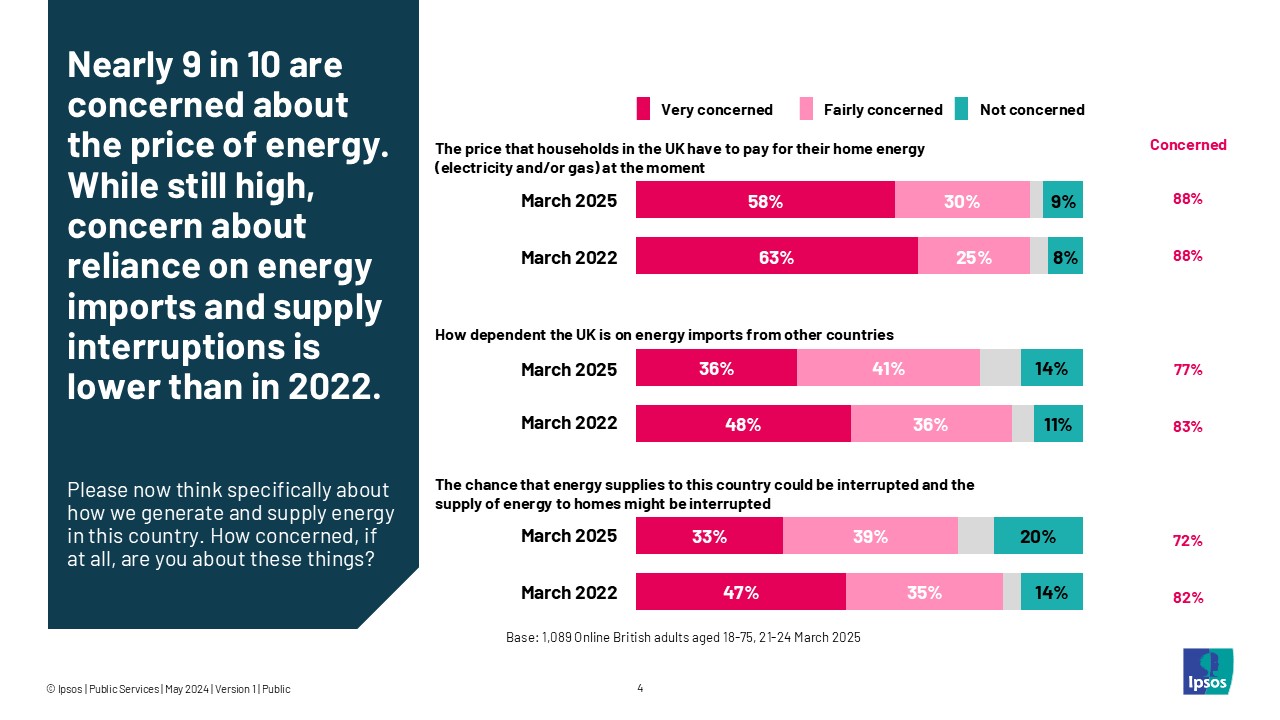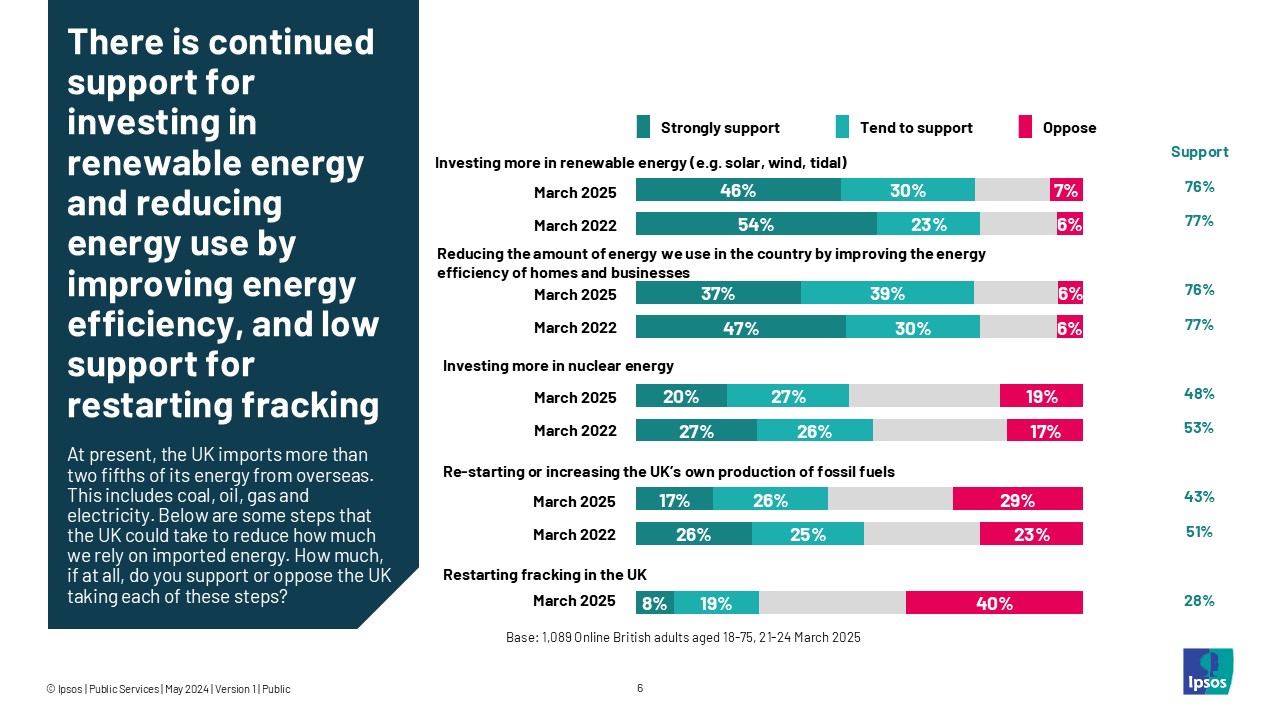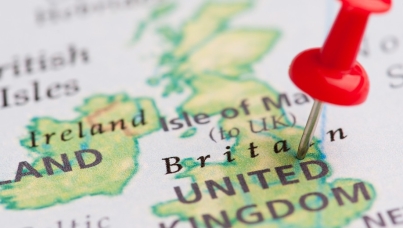Almost nine in ten Britons are concerned about energy prices
Ipsos UK today released the findings of a new study exploring the British public’s views on the cost of energy, their preferred solutions to bolster energy security, and how much they prioritise tackling climate change.
Cost pressures
- Levels of concern about both energy prices and energy security are high: The vast majority (88%) of Britons are concerned about the price that households in the UK have to pay for their home energy (electricity and/or gas) at the moment, unchanged since 2022. Concern on this issue is higher than concern about energy security issues, such as how dependent the UK is on energy imports from other countries (77%) or the chance that energy supplies to the UK could be interrupted and the supply of energy to homes might be interrupted (72%). Although the majority are still worried about these issues too. concern has decreased since 2022, from 83% and 82% respectively.
- Heating use: Generally, this past winter, Britons used their heating about the same amount (45%) or less often (31%) than in previous winters. One in five (21%) used it more often.

Energy security
- To boost our energy security, Britons would most support investing in renewable energy and reducing energy consumption by improving energy efficiency: Investing more in renewable energy and reducing the amount of energy we use by improving the energy efficiency of homes and businesses (each 76%) have the highest support among options for reducing UK energy imports. Around half (48%) would support investing more in nuclear energy, two in five (43%) restarting or increasing UK fossil fuel production, while just over a quarter (28%) would support restarting fracking in the UK, with two in five (40%) opposed.
- Two thirds (66%) would support having more sources of clean energy generation built in their local area - but support changes under different scenarios: When asked about support or opposition to clean energy generation in their area under specific circumstances, the majority would support it if it reduced their household energy bills (78%), had a small or no impact on local wildlife and livestock (69%) or was built on brownfield sites (land that has been built on before) (68%). Support was much lower if it was built on greenfield sites (land that has not been built on before) (40%), would cost taxpayers more in initial building costs (40%) or was built on land that could be used for other things such as housing or food production (41%).

Climate change
- While climate change is important, compared to other problems facing the UK, two in five say it’s not the most important one: Compared to all the other problems facing the UK, climate change is important but not the most important issue facing the country. Two in five (42%) say it’s one of the most important problems while a similar proportion (37%) say it’s important, but not the most urgent one. Just 7% say it’s the single most important problem, while a similar proportion think it’s not at all important (6%). Attitudes are unchanged since 2023.
- When considering their vote preference, the public lean towards preferring a political party that would take strong action on tackling climate change over one that would slow down progress on the climate: More would be likely to vote for a political party that would take strong action against things that cause climate change, even if this increases costs of oil and gas production and requires increased investment in renewable energy supplies (40%). However, a third (34%) prefer a party that would slow down actions against things that cause climate change, because it is not necessary, or we can’t afford the additional costs right now while there are other priorities.
Commenting on the findings, Trinh Tu, Managing Director, Public Affairs at Ipsos, said:
Our new research reveals high public anxiety around energy, with 88% of the public expressing concern about current prices, and 72% worried about potential supply disruptions. Recent events surrounding British Steel, including discussions about the company's Chinese ownership, have coincided with these anxieties. There is broad public support for increased investment in renewable energy and energy efficiency to bolster energy security. Nuclear energy and increased fossil fuel production are less popular. However, support for clean energy is pragmatic, depending on cost, environmental impact, and whether projects use brownfield or greenfield land. Finally, while Britons recognise climate change as important, they don't consider it the UK's most pressing issue. This creates a complex challenge for policymakers seeking to achieve net zero.
Technical note:
- Ipsos interviewed a representative sample of 1,089 online British adults aged 18-75. Polling was conducted between the 21st and 24th March 2025.
- Data are weighted to match the profile of the population. All polls are subject to a wide range of potential sources of error.



